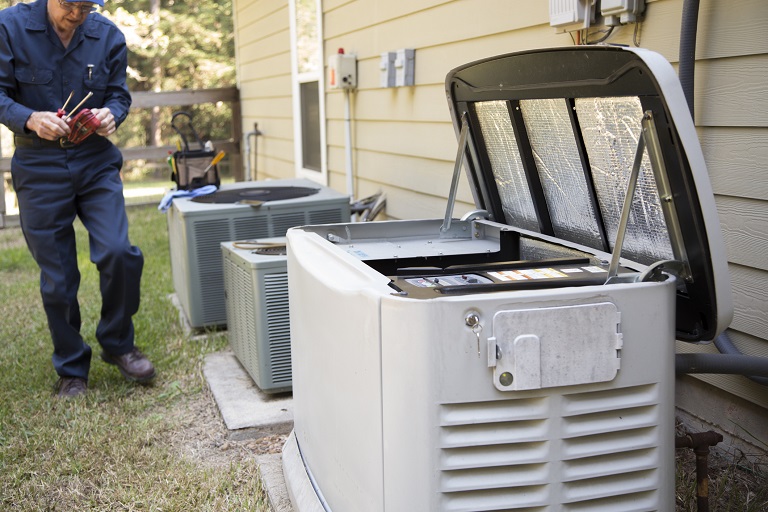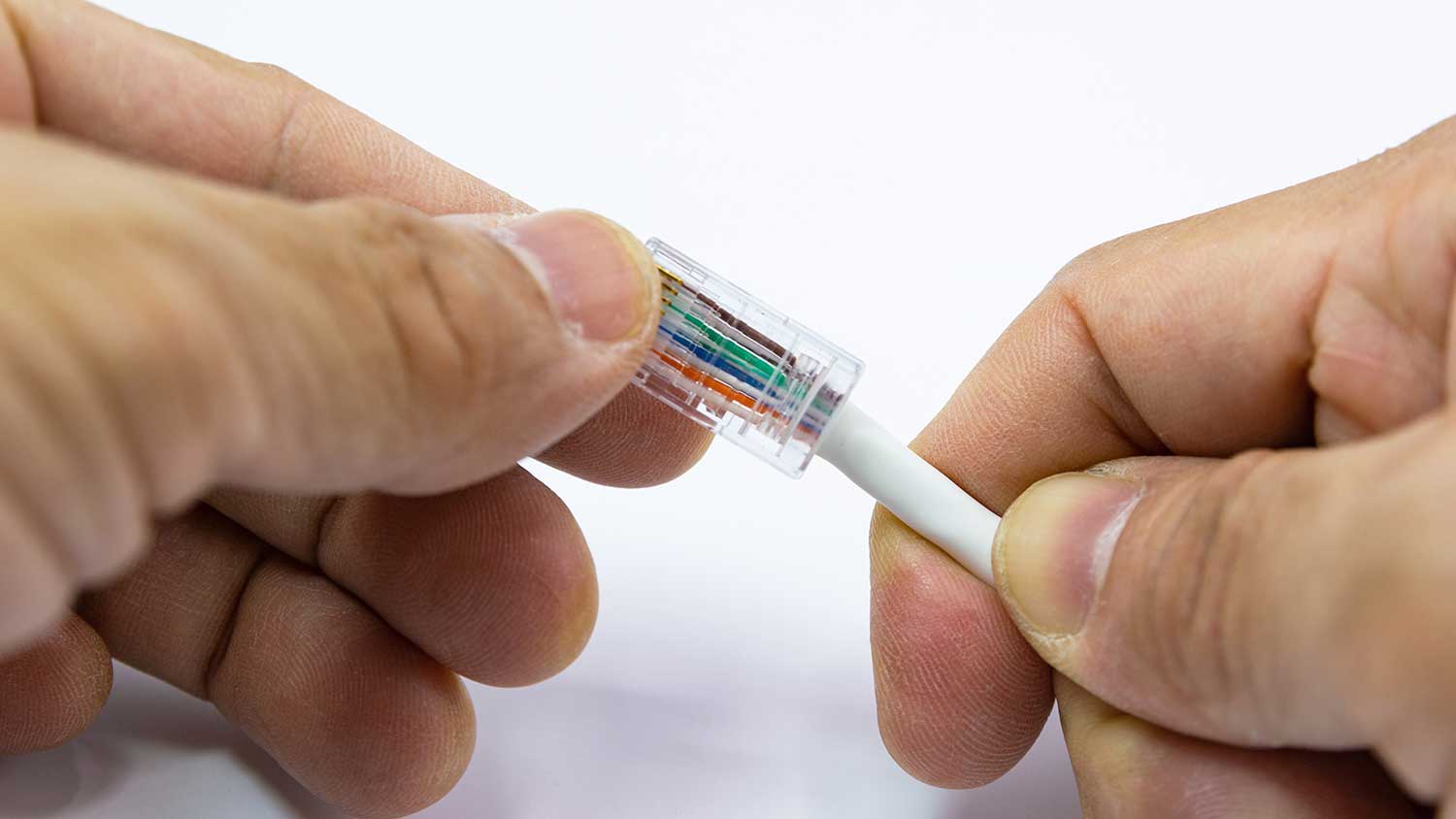
Budget for the cost to replace a light switch based on factors such as switch type, project complexity, hiring a professional electrician, and more.
Installing a dedicated circuit costs an average of $700
Most homeowners spend between $570 and $1,000 on average for the cost to install a dedicated circuit.
Your location, circuit requirements, and installation complexity all impact the total cost.
A dedicated circuit provides power exclusively to one appliance or outlet to prevent electrical overloads.
Professional installation ensures safety and compliance with local building codes.
This article was created using automation technology and thoroughly fact-checked and edited by HomeAdvisor Editor Ryan Noonan.
On average, homeowners invest between $570 and $1,000 for the cost to install a dedicated circuit, with most paying an average of $700. Various factors influence the final price, including the type of circuit needed, the complexity of installation, and your geographic location.
A dedicated circuit delivers electricity to a single appliance or outlet, helping prevent circuit overloads and reducing fire hazards. When you need to power major appliances like refrigerators or ovens, these specialized circuits become essential for electrical safety.
Understanding what affects the cost of installing a dedicated circuit can help you budget appropriately for this important electrical upgrade.
Dedicated circuits come in different amperage ratings depending on what appliance or area they'll serve. The two primary types are 20-amp circuits and 30 to 50 amp circuits.
| Circuit Type | Applications | Average Cost |
|---|---|---|
| 20 amp | Small appliances, computers, standard outlets | $700 |
| 30–50 amp | Electric ranges, dryers, water heaters | $700 |
Both types of circuits cost approximately the same to install, at $700. The similarity in cost occurs because the installation process is largely the same, though material costs may vary slightly.
The physical distance between your electrical panel and where the new circuit will terminate affects both labor time and material requirements. While the reference cost guide doesn't provide specific breakdowns by size, longer distances require more wire and labor time.
Most dedicated circuit installations are one-time projects. However, if you're planning multiple installations, some electricians may offer a discount on the per-circuit cost. This section refers to how bundling multiple circuit installations can potentially reduce your overall expense.
The components needed for a dedicated circuit installation include circuit breakers, junction boxes, connectors, and wiring. The average cost for materials is between $100 and $150 for a standard dedicated circuit installation.
| Component | Average Cost |
|---|---|
| Circuit breaker | $10–$30 |
| Junction box | $10–$20 |
| Connectors | $5 |
| Fasteners | $5–$20 |
| Fittings | $5 |
| Wires | $1 per foot |
Professional electricians charge between $50 and $100 per hour for their services. The first hour often costs more, averaging $150, to account for travel time and initial setup. Labor represents the largest portion of your dedicated circuit installation cost, ranging from $550 to $970.
The labor process includes:
Shutting off power
Cutting mounting holes
Mounting electrical boxes
Adding a new circuit breaker
Securing and connecting wiring
Where you live significantly impacts installation costs due to varying labor rates and permit requirements across the country.
| Location | Average Cost Range |
|---|---|
| New York, NY | $890–$1,090 |
| Des Moines, IA | $610–$740 |
| Los Angeles, CA | $710–$870 |
| Seattle, WA | $715–$875 |
| Miami, FL | $570–$700 |
| Topeka, KS | $600–$740 |
| Philadelphia, PA | $720–$880 |
| Santa Fe, NM | $645–$790 |
| Detroit, MI | $670–$820 |
Depending on your home's electrical system and the complexity of the installation, installing a dedicated circuit might incur additional expenses.
| Add-On Service | Cost Range |
|---|---|
| Upgrading electrical panel | $500–$2,000 |
| Running wire through walls | $600–$6,000 |
| Framing or system repairs | $7–$16 per sq. ft. |
| Permitting and inspection | $10–$500 |
| Garage circuit installation | $250–$900 |
While installing a dedicated circuit is primarily a one-time expense, there are some continuing considerations to keep in mind.
Dedicated circuits require minimal maintenance. Occasional visual inspections of outlets, connections, and breakers can help identify potential issues before they become problems. Professional electrical inspections cost between $100 and $400 and are recommended periodically to ensure system safety and code compliance.
A dedicated circuit doesn't add any direct operating costs beyond the electricity consumed by the appliances connected to it. The circuit itself doesn't use electricity when appliances are not in operation.
If repairs become necessary, costs will vary based on the specific issue:
Replacing a circuit breaker: $10 to $30 plus labor
Junction box repairs: $10 to $20 plus labor
Rewiring: Part of the $600 to $6,000 range for running wire, depending on complexity and access
Emergency electrical repairs often come at premium rates, sometimes 1.5 to two times the standard rate.
Properly installed dedicated circuits by licensed electricians help ensure your electrical system meets code requirements. While the reference guide doesn't specifically mention insurance impacts, professional installation documentation is important for maintaining home warranty and insurance coverage.
Consider these cost-saving tips to make your electrical project more budget-friendly:
Compare multiple quotes: Reach out to several local licensed electricians to find competitive pricing for your project.
Consider scheduling strategically: Fall and winter months may offer better rates when electricians are less busy.
Prepare access points: Clear the work area and ensure easy access to reduce labor time and costs.
Plan for wall repairs: If your installation requires opening walls, be prepared for additional expenses or consider handling non-electrical repairs yourself.
Bundle multiple circuits: If you need several dedicated circuits, installing them simultaneously can reduce the per-circuit cost.
Discuss budget constraints: Most electricians can suggest cost-effective solutions that meet your needs while staying within budget.
Research permit requirements: Understanding local permit costs in advance helps avoid surprise expenses.
No place is more important than your home, which is why HomeAdvisor connects homeowners with local pros to transform their houses into homes they love. To help homeowners prepare for their next project, HomeAdvisor provides readers with accurate cost data and follows strict editorial guidelines. After a project is complete, we survey real customers about the costs to develop the pricing data you see, so you can make the best decisions for you and your home. We pair this data with research from reputable sources, including the U.S. Bureau of Labor Statistics, academic journals, market studies, and interviews with industry experts—all to ensure our prices reflect real-world projects.
From average costs to expert advice, get all the answers you need to get your job done.

Budget for the cost to replace a light switch based on factors such as switch type, project complexity, hiring a professional electrician, and more.

Estimate the cost to rewire a house based on the key factors. Our guide covers different wire types, permits, and ways to save on electrical system upgrades.

Unsure who can fix a generator? Learn whether to hire a generator technician or electrician and what affects repair costs—start your search now.

Wondering who can install recessed lighting? See who to hire, other pro options, steps, and costs to plan your project confidently.

Who can run ethernet cable through walls? Learn whether to hire an electrician or general contractor, what to expect, and how pros get it done.

Learn who to call for electrical problems—electrician or power company—and when to get help. See pro steps, safety tips, and hiring guidance.